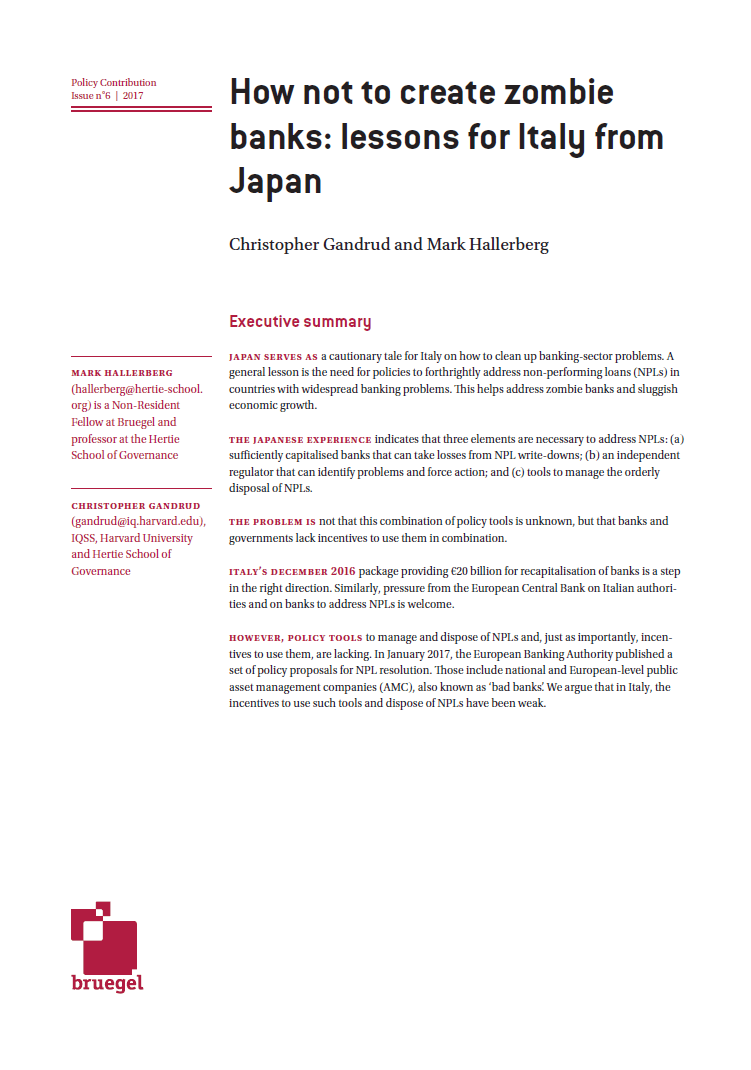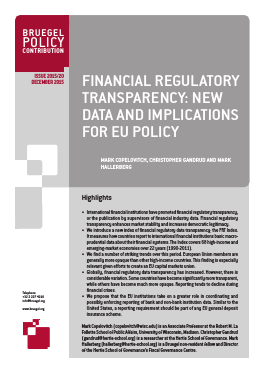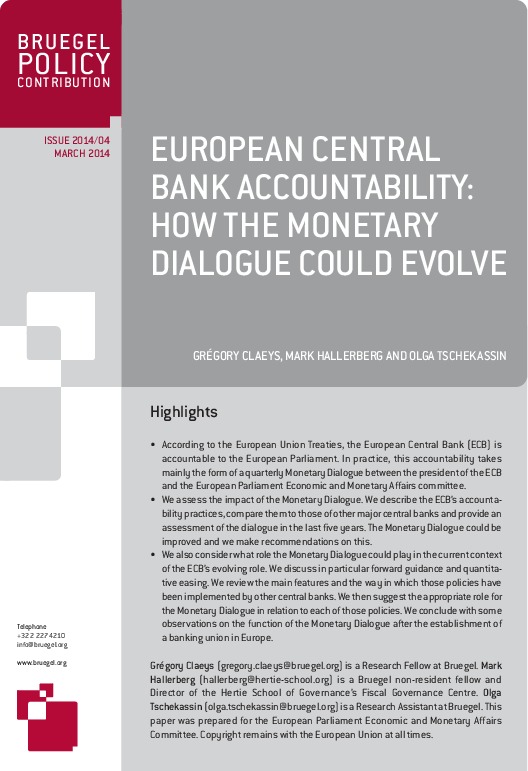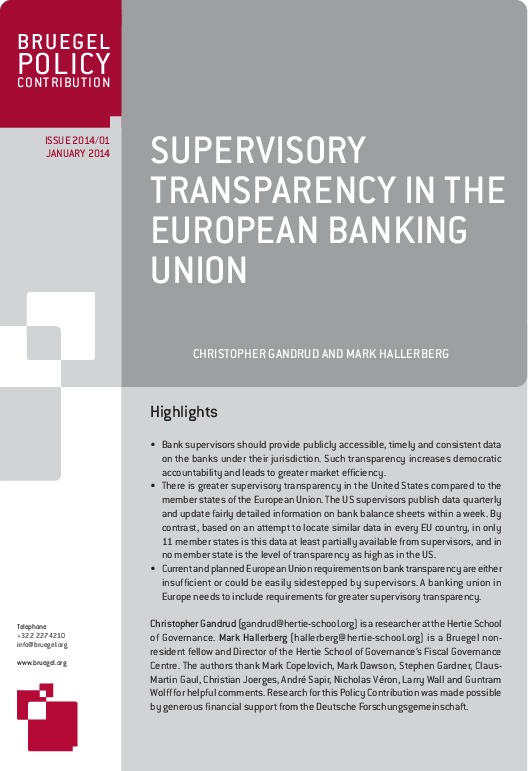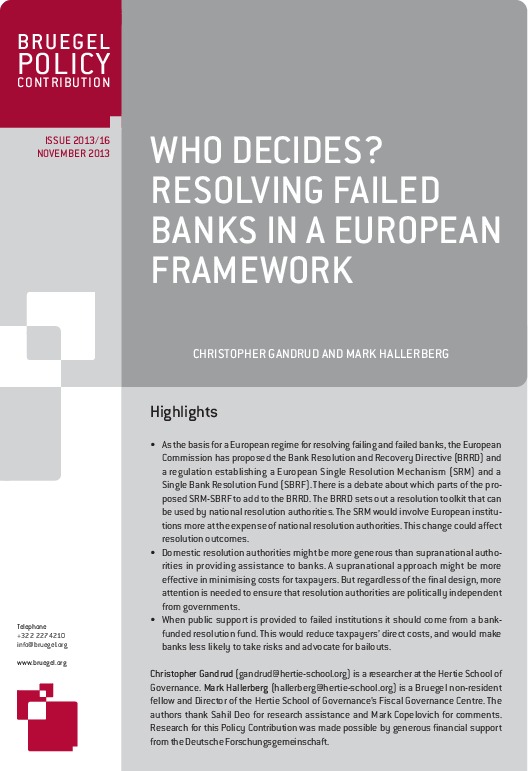Scholars

Mark Hallerberg
Non-Resident Fellow
Expertise: Fiscal governance, tax competition and exchange rate choice Twitter: @mhallerberg
Mark Hallerberg has been a Non-Resident Fellow at Bruegel since September 2013. He is a Professor of Public Management and Political Economy at the Hertie School of Governance and is Director of Hertie's Fiscal Governance Centre.
He is the author of one book, co-author of a second, and co-editor of a third. He has published over twenty-five articles and book chapters on fiscal governance, tax competition and exchange rate choice.
He has previously held professorships at Emory University, the University of Pittsburgh, and the Georgia Institute of Technology. He has done consulting work for the Dutch and German Ministries of Finance, Ernst and Young Poland, the European Central Bank, the German Development Corporation (GIZ), the Inter-American Development Bank, International Monetary Fund, and the World Bank.


